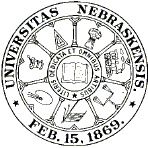
University Studies (University of Nebraska) (1888–1984)
Date of this Version
1920
Citation
UNIVERSITY STUDIES VOL. XX JULY-OCTOBER, 1920 Nos. 3, 4, pp 87-161
Abstract
The importance of the embassy of Everaard van Weede, Lord of Dykvelt, to England in 1687, has been variously estimated by the many historians of the Revolution of 1688. Bishop Burnet, who played an important role in all the counsels of William and acted as the spiritual minister to Mary, speaks intimately of the whole affair. He gives an account of the mission which purports to be as he had it from the envoy himself. In Burnet's opinion the embassy may from one point of view be looked upon as a failure, for its ostensible objects were not attained. But Burnet believed that the real significance of the embassy was to be found in "the management of instructions to the Parliamentary leaders" and that from this point of view the embassy was "more prosperous." A secret cabal, he says, fotmed under the direction of Dykvelt, "concerted such advices and advertisements as might be fit for the prince to know, ... and upon these the prince governed all his motions." Burnet intimates that already at this time the Prince had in mind some "change in the face of affairs as would amaze all the world." Avaux, the French ambassador at the Hague, suspicious, crafty, and vigilant, seems to have noted the whole project of William at this time. Yet, he confesses many months afterwards, when the enterprise was on the point of taking place, that he could never understand how Dykvelt and the others had been able to establish in England a sufficiently large commerce for fomenting an uprising of so many different people or how they had distributed money for this enterprise without the King of England discovering anything of it.


Comments
PUBLISHED BY THE UNIVERSITY 1920